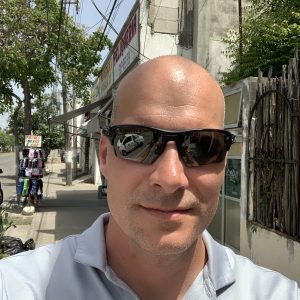Over the past two decades, Turning Winds has been able to help many families overcome what seemed impossible odds. Substance misuse and other mental health conditions typically exert severe stress on the entire family system, making them relationship issues. Families often end up in turmoil—especially if the turmoil is centered on a teenage child.
“They are urgently trying to figure out what to do to help their child—before it’s too late,” says chief operations officer Carl Baisden. “Sending them to Turning Winds is an important step and the parent workshop we offer once a month provides families with important tools to achieve the best possible outcome for their teens.”
The Turning Winds team aims to engage parents as much as possible, during the residential treatment phase and—most importantly—after their teen returns home.
After helping start and run successful wilderness and residential treatment programs for troubled teens himself, author Tim Thayne became increasingly frustrated over relapses and began to research what makes change last. In 2013, he published Not By Chance as a guide for parents in their crucial leadership roles as culture builders and change agents.
Thayne, who has a doctoral degree from Virginia Tech in marriage and family therapy, offered three main reasons for writing the book: to educate parents on their vital role throughout the treatment process; to inspire parents to get engaged immediately as a partner with their program of choice; and to coach parents on creating a feasible, concrete plan that will maximize their teen’s success following treatment.
“When your treatment program and your teen’s progress indicate that it’s time for your teen to return to the natural environment of home and family, the baton is being passed back to you,” Thayne wrote. This may seem a daunting responsibility for parents. As in many other endeavors in life, being prepared is essential.
“There is no reason for a loss of momentum due to lack of knowledge and a plan.” Thayne appeals to his readers to think of his book as a “blueprint for putting together the most thought-out, research-based, and proven model available for your son’s or daughter’s successful transition between treatment and home.”
After looking through more than a decade of outcome research, Thayne identified three factors that were key in predicting long-term success:
- The extent to which the residents’ families are involved in the treatment process before discharge
- The stability and structure of the place where the children or adolescents live after discharge
- The utilization of aftercare support for the children or youth and their families
“Teens that have family, and particularly parents, involved in the treatment process, have better outcomes,” Thayne wrote in Not By Chance. “Parents who are engaged in the process are more likely to understand and buy into the approach being taken in treatment, and will therefore support treatment through to completion; by doing so will improve the functioning of their family.”
While a good treatment program such as Turning Winds provides a therapeutic structure and stability for the teen while away from home, an effective aftercare process needs to ensure that positive change will continue after discharge. “The involvement of the family, and particularly the parents, in the aftercare process is vital.”
The book explains in great detail how to support a teenage child during the transition from the structured treatment environment back to living with the family. “While our goal is to produce the systemic change that frees individuals to move forward and find better relationships and greater happiness, this is best accomplished as individuals within the family—focus on how they can do their part personally,” Thayne wrote. “Everyone has a role.”
The new relationships forged at Turning Winds don’t disappear at discharge, either. Many alumni stay in touch with their trusted therapists long after their discharge. “Kids often reach out to us,” says Turning Winds CEO Owen Baisden. “They call and text us and give us updates on what’s going on in their lives.” Turning Winds alumni always have somebody they can call if they struggle. If they get stuck, they turn to the people they trust and the people they have connections with.
Our mission is to rescue teens from crisis situations, renew their belief in their own potential, reunite them with their families, and put them on a sustainable path to success. Contact us online for more information, or call us at 800-845-1380. If your call isn’t answered personally, one of us will get back to you as soon as possible.









